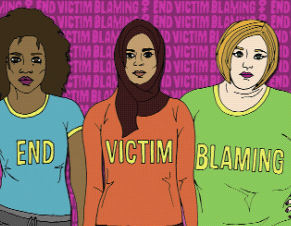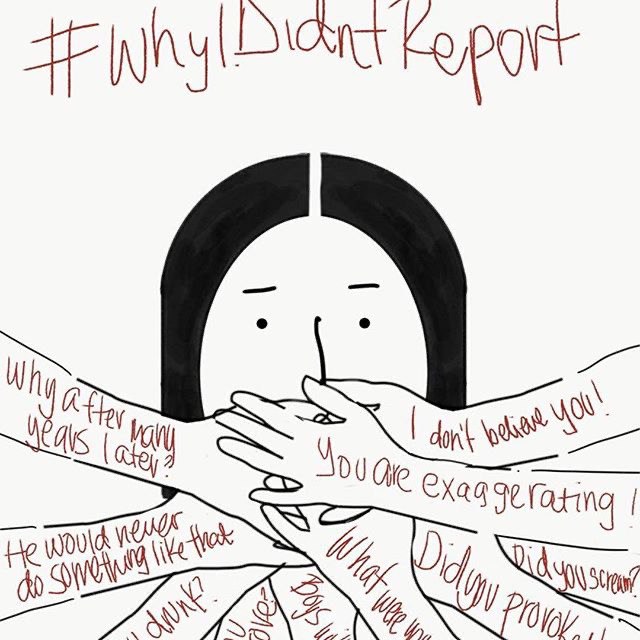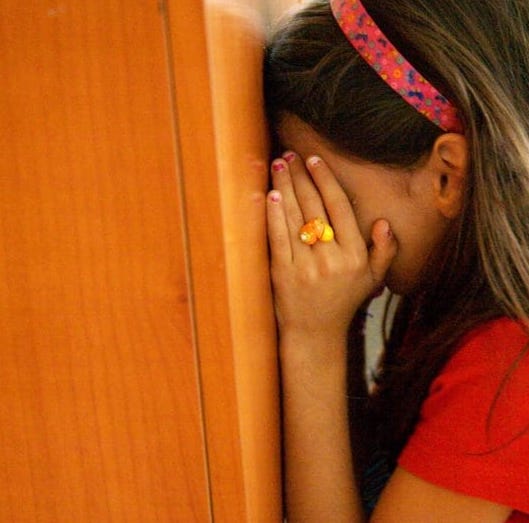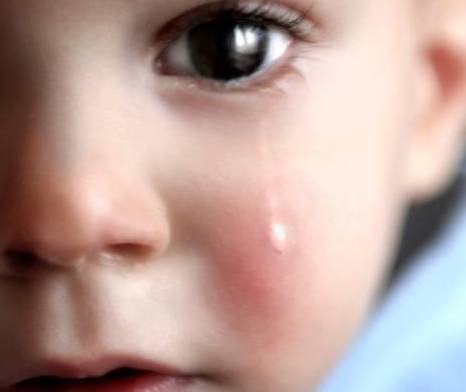The files opened before the Italian courts are full of the stories of women who decide to interrupt their relationship with their partner, due to various forms of violence (from a psychological form to a physical one) that women do not always report to the criminal authorities, requesting instead the intervention of the ordinary court or, in the most serious cases, of the Juvenile Court, competent for actions of loss and suspension of parental authority.
“the records show negligence, carelessness, widespread non-compliance with maintenance obligations, and even witnessed violence: mothers suffer prevarication and denigration in front of their children”
A violation of human rights
 There is no shortage of cases of psychological and physical violence against children. As feminist lawyers committed to providing legal assistance to women who experience male violence in intimate relationships, over the years we have carried out constant empowerment work, including legal empowerment, together with the operators of anti-violence centres. We have informed the women of their own rights, of the institutions provided for within our legal system (from protection orders in civil law to precautionary measures following a complaint to the judicial authorities in criminal proceedings), supporting them in requesting sole custody and above all accessing to justice without any mediation, claiming the protection of fundamental rights damaged by a conduct, which, as we know, is recognised as a serious violation of human rights. The work of the legal office of Differenza Donna in this direction has been constant over the years, achieving important results thanks to a multi-level strategy.
There is no shortage of cases of psychological and physical violence against children. As feminist lawyers committed to providing legal assistance to women who experience male violence in intimate relationships, over the years we have carried out constant empowerment work, including legal empowerment, together with the operators of anti-violence centres. We have informed the women of their own rights, of the institutions provided for within our legal system (from protection orders in civil law to precautionary measures following a complaint to the judicial authorities in criminal proceedings), supporting them in requesting sole custody and above all accessing to justice without any mediation, claiming the protection of fundamental rights damaged by a conduct, which, as we know, is recognised as a serious violation of human rights. The work of the legal office of Differenza Donna in this direction has been constant over the years, achieving important results thanks to a multi-level strategy.
On the one hand providing specialised legal assistance to individual women, and on the other hand, unremitting documentation of bad practices with institutions, in a continuous confrontation that has produced a strong impact
The Istanbul Convention
 As an example of the results obtained, here is a passage from a decision of the Court of Rome, Judge Velletti, who, in a case of regulation of the custody of a minor daughter, considered that the abusive conduct ascertained in criminal proceedings: are relevant regardless of the establishment of criminal responsibility, since to assess the parental ability it is enough if the conduct of one of the parents is denigrating and aggressive towards the other in the presence of the minor (Court of Rome, 20.12.2019, no. 28454)”. The Court went on pointing out that in such cases, the parameter for deciding is Article 31 of the Council of Europe Convention on preventing and combating violence against women and domestic violence, the so-called Istanbul Convention ratified by Italy with the Law No. 76 of the 27th June 2013:
As an example of the results obtained, here is a passage from a decision of the Court of Rome, Judge Velletti, who, in a case of regulation of the custody of a minor daughter, considered that the abusive conduct ascertained in criminal proceedings: are relevant regardless of the establishment of criminal responsibility, since to assess the parental ability it is enough if the conduct of one of the parents is denigrating and aggressive towards the other in the presence of the minor (Court of Rome, 20.12.2019, no. 28454)”. The Court went on pointing out that in such cases, the parameter for deciding is Article 31 of the Council of Europe Convention on preventing and combating violence against women and domestic violence, the so-called Istanbul Convention ratified by Italy with the Law No. 76 of the 27th June 2013:
1 The Parties shall take legislative or other measures necessary to ensure that episodes of violence falling within the scope of this Convention are taken into account when determining child custody and visitation rights.
2 The Parties shall take legislative or other measures necessary to ensure that the rights to visits or custody do not compromise the rights to safety of the victim or of the children.
 Article 31 thus enshrines the principle of “safety first”, as effectively summarised by the British courts, following institutional awareness-raising activities conducted by Women’s Aid (Women’s Aid, “Child First: Safe Child Contact Saves Lives”, 2017): the priority is to ensure “safety”, in the sense of psycho-physical safety, of children, but also of women who have previously suffered violence. The Court of Appeal of Rome, Cons. Est. Pierazzi, in its decree of November the 3rd 2020 (No. R.G. 50940/2020) clarified that it is precisely in the fulfilment of the obligations set out in Article 31 of the Istanbul Convention that a declaration of loss of parental responsibility may legitimately be made towards a father convicted for abuses and specified that
Article 31 thus enshrines the principle of “safety first”, as effectively summarised by the British courts, following institutional awareness-raising activities conducted by Women’s Aid (Women’s Aid, “Child First: Safe Child Contact Saves Lives”, 2017): the priority is to ensure “safety”, in the sense of psycho-physical safety, of children, but also of women who have previously suffered violence. The Court of Appeal of Rome, Cons. Est. Pierazzi, in its decree of November the 3rd 2020 (No. R.G. 50940/2020) clarified that it is precisely in the fulfilment of the obligations set out in Article 31 of the Istanbul Convention that a declaration of loss of parental responsibility may legitimately be made towards a father convicted for abuses and specified that
[…] the desire not to resume relations with a parent who has acted in a violent, frightening and threatening manner appears to be an understandable protective reaction, not unreasonable and not pathological but functional to avoid new exposure to danger and suffering. When the acts of violence, suffered and witnessed, credibly emerge from the trial documents and the minors do not show signs of personal, psychological or social discomfort other than the desire not to meet the parent whom they remember having behaved in the seriously prejudicial manner previously described, tracing and reducing such a decision to a psychological pathology may constitute a potential source of harm to the minors.
 The Court of Appeal of Rome thus rejected the father’s complaints accusing the mother of having conditioned the children in their relationship with him, also questioning the usefulness of a Technical-Legal Consultancy requested by the father to assess “the reasons” for the refusal, charged to the mother’s “condition of victim”. The Court writes:
The Court of Appeal of Rome thus rejected the father’s complaints accusing the mother of having conditioned the children in their relationship with him, also questioning the usefulness of a Technical-Legal Consultancy requested by the father to assess “the reasons” for the refusal, charged to the mother’s “condition of victim”. The Court writes:
To subject them to a psychological Technical Legal Consultancy aimed at sounding out their functioning in order to induce them to change this position clearly assumed, would constitute on the one hand a merely exploratory investigative activity aimed at searching for possible psychopathological causes of a discomfort, for which clear and adequate factual causes have already emerged. On the other hand, and consequently, it would become one of the most typical hypotheses of secondary victimisation stigmatised by Article 31 of the Istanbul Convention.
Jurisprudence
 Urged by protocols such as the Interinstitutional Table of the Court of Rome and by the regulatory changes made by the law of the 19th of July 2019 (no. 69), case law has begun to evaluate the acts of ongoing criminal trials, overcoming the approach of legal psychology that detects “experiences” and not facts, regarding judgments on parental responsibility that still remain an unequal battlefield where women are exposed to discrimination as women and as mothers.
Urged by protocols such as the Interinstitutional Table of the Court of Rome and by the regulatory changes made by the law of the 19th of July 2019 (no. 69), case law has begun to evaluate the acts of ongoing criminal trials, overcoming the approach of legal psychology that detects “experiences” and not facts, regarding judgments on parental responsibility that still remain an unequal battlefield where women are exposed to discrimination as women and as mothers.
“the background against which women’s court cases unfold, is the result of the intertwining of several legal, psychological and socio-political paths”
 Starting from the principle of double parenthood, produced by jurisprudence, to the “access” criterion, elaborated during psycho-forensic evaluations to assess the behaviour of a parent in facilitating the relationship of the child with the other parent and passing through parental alienation and the therapy of the “threat” to re-establish the parental relationship undermined by the alienator. All these issues are divulged through an apparently gender-neutral narrative, which, however, turns out in court practice to be steeped in sexist prejudices against women.
Starting from the principle of double parenthood, produced by jurisprudence, to the “access” criterion, elaborated during psycho-forensic evaluations to assess the behaviour of a parent in facilitating the relationship of the child with the other parent and passing through parental alienation and the therapy of the “threat” to re-establish the parental relationship undermined by the alienator. All these issues are divulged through an apparently gender-neutral narrative, which, however, turns out in court practice to be steeped in sexist prejudices against women.
 Mothers are continuously pointed at as being responsible for the difficulties between the father and children relation, following psychodiagnostic evaluations that generalise commonplaces and stereotypes, delighting in prognostic judgements of future damages that the maternal behaviour labelled as “excess of protection” could cause to the psychophysical health of children. This, moreover, is part of a framework of analyses conveyed by well-known contemporary authors (cf. among others M. Recalcati; L. Zoja; C. Risé), who through the elaboration of a popular psychoanalytical knowledge, often attractive and accessible:
Mothers are continuously pointed at as being responsible for the difficulties between the father and children relation, following psychodiagnostic evaluations that generalise commonplaces and stereotypes, delighting in prognostic judgements of future damages that the maternal behaviour labelled as “excess of protection” could cause to the psychophysical health of children. This, moreover, is part of a framework of analyses conveyed by well-known contemporary authors (cf. among others M. Recalcati; L. Zoja; C. Risé), who through the elaboration of a popular psychoanalytical knowledge, often attractive and accessible:
“identify in the “fatherless society”, and therefore not “normal”, the knot of the crisis of contemporary society: a problem that must be cured “with a new law and a new order”
 (G.Petti-L. Stagi, cit., p. 9). According to this thesis, the concomitant cause of a society without fathers, with the related crisis of masculinity, lies with women against whom a collection of mother blaming narratives has been stratified, imputing to them the responsibility for all behaviour that can be defined as socially misleading. A process of blaming that never happens directly, but conceals the criticism of women behind the praise of traditional family values and concerns for a healthy “double parenthood” that guarantees equal rights and duties for both parents, promoting the responsible and cooperative parenting, in support of both mothers and fathers, as co-beneficiaries of equal parenting (on this topic see S. Ciccone, “Essere maschi. Tra potere e libertà”, Rosenberg & Sellier, 2009; L. Gasparrini, “Diventare uomini. Male relations without oppression”, Settenove, 2016).
(G.Petti-L. Stagi, cit., p. 9). According to this thesis, the concomitant cause of a society without fathers, with the related crisis of masculinity, lies with women against whom a collection of mother blaming narratives has been stratified, imputing to them the responsibility for all behaviour that can be defined as socially misleading. A process of blaming that never happens directly, but conceals the criticism of women behind the praise of traditional family values and concerns for a healthy “double parenthood” that guarantees equal rights and duties for both parents, promoting the responsible and cooperative parenting, in support of both mothers and fathers, as co-beneficiaries of equal parenting (on this topic see S. Ciccone, “Essere maschi. Tra potere e libertà”, Rosenberg & Sellier, 2009; L. Gasparrini, “Diventare uomini. Male relations without oppression”, Settenove, 2016).
Hiding violence and pathologisation of the family
 Every dissimilar behaviour or organisational model diverging from the binary nuclear one, becomes suspect and relevant from a nosographic point of view. Thus, writes the sociologist Gabriella Petti, “social pathologies are treated with the pathologisation of the family through an apparently gender-neutral narrative, which, however, translates into institutional gender-based violence, addressed to women in such a disproportionate way that it can be qualified as direct discrimination against women” (cf. CEDAW Committee, 2011; 2017; GREVIO, 2020). This makes concrete the fear “of losing their children”: a threat that women commonly receive from a partner who suffers the end of a romantic relationship, especially when the reason for it to end is women’s determination not to suffer any more violence from him (see COE, Explanatory Report to the Istanbul Convention, 2011).
Every dissimilar behaviour or organisational model diverging from the binary nuclear one, becomes suspect and relevant from a nosographic point of view. Thus, writes the sociologist Gabriella Petti, “social pathologies are treated with the pathologisation of the family through an apparently gender-neutral narrative, which, however, translates into institutional gender-based violence, addressed to women in such a disproportionate way that it can be qualified as direct discrimination against women” (cf. CEDAW Committee, 2011; 2017; GREVIO, 2020). This makes concrete the fear “of losing their children”: a threat that women commonly receive from a partner who suffers the end of a romantic relationship, especially when the reason for it to end is women’s determination not to suffer any more violence from him (see COE, Explanatory Report to the Istanbul Convention, 2011).
This cultural and political operation, equal among legal systems with formally advanced legislation on family law, gender equality and the prevention of violence against women, is a deliberate reaction to the advancement of women’s rights, and it is reproduced and amplified by the legal matters of separation and child custody.
“the judiciary offers a lot of space to family mediation and forensic psychology, which convey the principle of double parenthood through the dangerous pathological implication of pas”
 Thus, particularly through the institution of the Technical Legal consultancy put in order ex art. 61 c.c.p., evaluations that have nothing psychological about them and that generalise commonplaces and sexist stereotypes (R.E. Emery, R. K. Otto, W.T. O’Donohue, A Critical Assessment Of Child Custody Evaluations. Limited Science and a Flawed System. Psychological Science in the Public Interest, vol. 6 n. 1, pp. 1-29), are used to support prognostic conclusions of future damage that would affect children because of maternal protective behaviour. Conveying in civil trials deterministic argumentative paradigms worthy of the positivist penal school of the early twentieth century. On the other hand, physical or psychological violence, often directly witnessed by children and often the cause of their resistance to meet their father alone, is hidden, if not actually concealed.
Thus, particularly through the institution of the Technical Legal consultancy put in order ex art. 61 c.c.p., evaluations that have nothing psychological about them and that generalise commonplaces and sexist stereotypes (R.E. Emery, R. K. Otto, W.T. O’Donohue, A Critical Assessment Of Child Custody Evaluations. Limited Science and a Flawed System. Psychological Science in the Public Interest, vol. 6 n. 1, pp. 1-29), are used to support prognostic conclusions of future damage that would affect children because of maternal protective behaviour. Conveying in civil trials deterministic argumentative paradigms worthy of the positivist penal school of the early twentieth century. On the other hand, physical or psychological violence, often directly witnessed by children and often the cause of their resistance to meet their father alone, is hidden, if not actually concealed.
Parental alienation
 Conflicts and “relational problems” in the family nucleus are generally stabilised in the form of parental alienation, a construct conveyed through the Technical Legal Consultancies and transposed by the judicial prose to fix the problems of family relationships in a pathological regime that requires the intervention of social services, couple consultants, psychotherapists. These figures, in the performance of the functions delegated by the judicial authority, create new obligations that are not governed by the law, but by the fear of seeing their sons/daughters removed from them, often charging the parties with unreasonable expenses that do not take into account the economic disparities between the parents, seriously undermining the principle of equality before the law. The prescriptions made in the course of Technical Legal Consultancies, often without a ratification of the judicial authority, do not defuse the disputes between the parties but increase their intensity.
Conflicts and “relational problems” in the family nucleus are generally stabilised in the form of parental alienation, a construct conveyed through the Technical Legal Consultancies and transposed by the judicial prose to fix the problems of family relationships in a pathological regime that requires the intervention of social services, couple consultants, psychotherapists. These figures, in the performance of the functions delegated by the judicial authority, create new obligations that are not governed by the law, but by the fear of seeing their sons/daughters removed from them, often charging the parties with unreasonable expenses that do not take into account the economic disparities between the parents, seriously undermining the principle of equality before the law. The prescriptions made in the course of Technical Legal Consultancies, often without a ratification of the judicial authority, do not defuse the disputes between the parties but increase their intensity.
“children are over-empowered as the barycenter of the balance between the parents through the formula of superior interest, and the rejection of one parent, usually the father, is categorized as parental alienation”
 The fear manifested by women towards ex-partners, even if motivated by past conduct that justified the adoption of protection measures, is mostly stigmatised in terms of women’s “inability” to shift the attention from their own experience of the relationship with their ex-partner to their sons/daughters’ one. Ignoring that in the regulation of custody the same law requires to take into account prejudicial behaviour, including domestic violence (see article 31 Istanbul Convention) and, in general, the quality of the relationship between the parents and the one with the children before and after the family crisis (Civil Cassation sec. I, 20/11/2019, no.30191).
The fear manifested by women towards ex-partners, even if motivated by past conduct that justified the adoption of protection measures, is mostly stigmatised in terms of women’s “inability” to shift the attention from their own experience of the relationship with their ex-partner to their sons/daughters’ one. Ignoring that in the regulation of custody the same law requires to take into account prejudicial behaviour, including domestic violence (see article 31 Istanbul Convention) and, in general, the quality of the relationship between the parents and the one with the children before and after the family crisis (Civil Cassation sec. I, 20/11/2019, no.30191).
Technical Legal Consultancy
 The “therapy” proposed is the redistribution of family roles through “care measures” which, however, are confused with “punishment measures” of the parent deemed “alienating”. The prescription often found in the psycho-forensic evaluation papers is the forced removal of the minor from the maternal home and the subsequent reinsertion in the paternal one, after a period in a residential community, cutting off the contacts with the mother following a logical, as well as scientific, consequentiality between cause and effect. This method goes beyond the legal limits of the institution of Technical Legal Consultancies, which is transformed from a context of evaluation into a therapeutic intervention of doubtful deontological, as well as legal, correctness.
The “therapy” proposed is the redistribution of family roles through “care measures” which, however, are confused with “punishment measures” of the parent deemed “alienating”. The prescription often found in the psycho-forensic evaluation papers is the forced removal of the minor from the maternal home and the subsequent reinsertion in the paternal one, after a period in a residential community, cutting off the contacts with the mother following a logical, as well as scientific, consequentiality between cause and effect. This method goes beyond the legal limits of the institution of Technical Legal Consultancies, which is transformed from a context of evaluation into a therapeutic intervention of doubtful deontological, as well as legal, correctness.
“the real result of this widespread gender discrimination against women is the neutralization of the effectiveness of our legal system,violating the obligation to guarantee the safety of children, and their mothers”
 The principle of safety first, which is contained in the provisions of the Istanbul Convention and in all existing legal institutions of our legal systems, is undermined. The orientation inaugurated by the Court of Appeal of Rome with decision no. 2 of 3 January 2020, even amidst the resistance of forensic psychology, distances itself from a government of family relations delegated to psycho-forensic disciplines and emphasises the need to address family events and in particular parent-child relations with a new and conscious look.
The principle of safety first, which is contained in the provisions of the Istanbul Convention and in all existing legal institutions of our legal systems, is undermined. The orientation inaugurated by the Court of Appeal of Rome with decision no. 2 of 3 January 2020, even amidst the resistance of forensic psychology, distances itself from a government of family relations delegated to psycho-forensic disciplines and emphasises the need to address family events and in particular parent-child relations with a new and conscious look.
 The undoubted complexity of decision-making in cases involving family relationships cannot lead to the complete delegation of the decision to the Technical Legal Consultants, but it is necessary to re-establish the pre-eminence of law as the reference parameter of the law of family relationships, with the awareness that human relationships can neither be measured and divided up geometrically, nor imposed as a prescription or therapy, but are built within the experience of each person and by authentically listening to the words of the children. And this must be supported, all together, by us lawyers, in front of all the judicial offices of the territory.
The undoubted complexity of decision-making in cases involving family relationships cannot lead to the complete delegation of the decision to the Technical Legal Consultants, but it is necessary to re-establish the pre-eminence of law as the reference parameter of the law of family relationships, with the awareness that human relationships can neither be measured and divided up geometrically, nor imposed as a prescription or therapy, but are built within the experience of each person and by authentically listening to the words of the children. And this must be supported, all together, by us lawyers, in front of all the judicial offices of the territory.




 This is the english section of
This is the english section of 